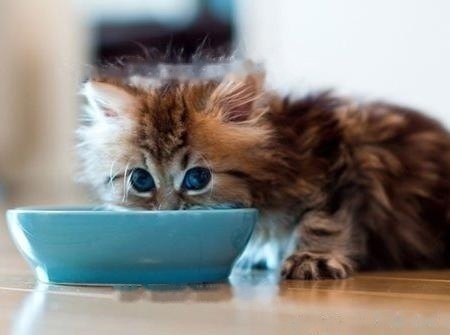Friends who have teacup cats may have some precautions that they are not very clear about. In this article, teacuppets will share with you what teacup cats can’t eat. I hope Everyone helps while raising a teacup cat.

teacup cat
Milk: Most cats do not have lactase and cannot decompose lactose. The intake of milk can easily lead to diarrhea in cats. However, yogurt can be fed in small amounts, original flavor. In addition, cats have special cat milk powder or goat milk powder.
Salt: This includes anything that contains salt, including low-quality cat food (especially Weijia, which is too salty), beef in your favorite sauce, and dried salted fish.
Grains, starches: (such as rice, noodles, steamed buns, bread, potatoes, etc.) For the sake of cats' teeth and why they can't absorb these foods, please don't feed them grains, starches .
Animal liver: Liver contains a lot of vitamin A, too much vitamin A can cause muscle stiffness, neck pain, deformed bones and joints, and liver disease. Small amounts are fine, but don't overdo it.
High-fat foods: high-fat fish or fatty meats, which can easily cause them to lack vitamin E, which can cause inflammation of the body fat and extreme pain.
Raw fish, raw meat: Cook them before feeding them. Although in some foreign countries it is highly recommended that cats and dogs eat raw meat, the domestic quarantine situation is not ideal. In order to prevent parasites, it is better not to give cats and dogs raw meat.
Dog Food: Cats are carnivores, while dogs are multigrain animals, and the nutrients in dog food are not sufficient to meet the needs of cats.
Seafood: shrimp, sea crab, squid, salamander, cuttlefish, octopus, squid, sardines and horse noodle fish, etc. Because the protein in these foods is not easily digested by cats, it also contains toxins that cause cat allergies. If a big cat eats too much, it will cause allergies, salivation, vomiting, diarrhea and other symptoms. If it is a kitten, it may even cause convulsions and death in severe cases. Sardines and horse-faced fish in particular contain a strange toxin to which cats react particularly strongly. However, this type of food is very fishy, and cats like it very much, and people like it too, so when we eat high-quality seafood, we must not feed them just because the cat is begging for food, and do not cause it because of the pet. its pain.
Bone (especially chicken and duck bones and larger fish bones): This is also said a lot, don't think cats are so strong, sharper bones and larger fish bones are easy to scratch Their throat or esophagus, this is also the warning of various veterinarians!
Condiments: such as salt, monosodium glutamate, pepper, mustard, chili oil, etc. Basically, as long as the food is processed by seasoning, it is not suitable for cats and dogs to eat. Because these condiments will affect the liver and kidney function of cats.
![[Dog Training 5] The training method of pet dog dining etiquette](/static/img/12192/12192_1.jpg)




